- Home
- Patricia Cornwell
Point of Origin Page 12
Point of Origin Read online
Page 12
“Why are you here so late?” Marino asked in his usual grumpy way as he sucked on a cigarette.
“My office is smoke-free,” I reminded him.
“Like anybody in this joint’s gotta worry about secondary smoke.”
“A few of us are still breathing,” I said.
He flicked the cigarette to the concrete floor and irritably crushed it with his foot, as if we had never been through this routine, not even once in our lives. In fact, this had gotten to be a standard act with us that in its own dysfunctional way somehow reaffirmed our bond to each other. I was quite certain that Marino’s feelings would be injured if I didn’t nag him about something.
“You can follow me into the decomp room,” I said to him as I shut the bay door. “I’m in the middle of something.”
“I wish I’d known before,” he complained. “I would’ve just dealt with you over the phone.”
“Don’t worry. It’s not too bad. I’m just cleaning up some bones.”
“Maybe that ain’t bad to you,” he said, “but I’ve never gotten used to smelling people cook.”
We walked inside the decomposition room and I handed him a surgical mask. I checked the processing to see how it was going and turned the heat down fifty degrees to make sure the water did not boil over and knock bones against each other and the sides of the pot. Marino bent the mask to fit over his nose and mouth and tied sloppy bows in the back. He spotted a box of disposable gloves, snatched a pair and worked them on. It was ironical that he was obsessive in his concerns about outside agents invading his health, when in fact the gravest danger was simply the way he lived. He was sweating in khakis and a white shirt and tie and at some point during the day had been assaulted by ketchup.
“Got a couple interesting things for you, Doc,” he said, leaning against a brightly polished sink. “We ran the tags on the burned-up Mercedes behind Kenneth Sparkes’s house, and it comes back to an ’81 Benz 240D, blue. The odometer’s probably rolled over at least twice. Registration’s a little scary, comes back to a Dr. Newton Joyce in Wilmington, North Carolina. He’s in the book but I couldn’t get him, just his answering machine.”
“Wilmington is where Claire Rawley went to school, and close to where Sparkes had his beach house,” I reminded him.
“Right. So far the signs are still pointing that way.”
He stared blankly at the steaming pot on the burner.
“She drives someone else’s car to Warrenton and somehow gets inside Sparkes’s house when he’s not home, and gets murdered and burns up in a fire,” he said, rubbing his temples. “I tell you, this one stinks about as bad as what you’re cooking there, Doc. We’re missing a really big piece, because nothing’s making sense.”
“Are there any Rawleys in the Wilmington area?” I asked. “Any possibility she has relatives there?”
“They got two listings, and neither of them have ever heard of a Rawley named Claire,” he said.
“What about the university?”
“Haven’t gotten to that yet,” he answered as I went over to check the pot again. “Thought you were going to do that.”
“In the morning.”
“So. You gonna hang out here all night cooking this shit?”
“As a matter of fact,” I said, turning off the burner, “I’m going to let it sit so I can go home. What time is it anyway? Oh God, almost nine o’clock. And I’ve got court in the morning.”
“Let’s blow this joint,” he said.
I locked the door to the decomposition room, and I opened the bay door again. Through it I saw mountainous dark clouds blowing across the moon like boats in full sail, and the wind was wild and making eerie rushing sounds around the corners of my building. Marino walked me to my car and seemed in no hurry as he got out his cigarettes and lit one.
“I don’t want to put any hinky ideas in your head,” he said, “but there’s something I think you ought to know.”
I unlocked my car door and slid behind the wheel.
“I’m afraid to ask,” I said, and I meant it.
“I got a call about four-thirty this afternoon from Rex Willis at the paper. The editorial columnist,” he said.
“I know who he is.”
I fastened my seat belt.
“Apparently he got a letter today from an anonymous source, kind of in the format of a press release. It’s pretty bad.”
“About what?” I said as an alarm shot through my blood.
“Well, it’s supposedly from Carrie Grethen, and she’s saying that she escaped from Kirby because she was framed by the feds and knew they’d execute her for something she didn’t do unless she got away. She claims that at the time of the murders you were having an affair with the chief profiler in the case, Benton Wesley, and all the so-called evidence against her was doctored, made up, a conspiracy between the two of you to make the Bureau look good.”
“And this was mailed from where?” I asked as outrage heated me up.
“Manhattan.”
“And it was addressed specifically to Rex Willis?”
“Yup.”
“And of course, he’s not going to do anything with it.”
Marino hesitated.
“Come on, Doc,” he said. “When’s the last time a reporter didn’t do something with something?”
“Oh for God’s sake!” I blurted out as I started the engine. “Has the media gone totally mad? They get a letter from a psycho and print it in the paper?”
“I’ve got a copy if you want to see it.”
He dug a folded sheet of paper out of his back pocket and handed it to me.
“It’s a fax,” he explained. “The original’s already at the lab. Documents is going to see what they can do with it.”
I unfolded the copy with shaking hands, and did not recognize the neat printing in black ink. It was nothing like the bizarre red printing that was on the letter I had received from Carrie, and in this epistle, the words were very articulate and clear. For a moment I read, skimming over the ridiculous claims that she had been framed, my eyes stopping cold on the last long paragraph.
As for Special Agent Lucy Farinelli, she has enjoyed a successful career only because the ever influential chief medical examiner, Dr. Scarpetta, her aunt, has covered up her niece’s mistakes and transgressions for years. When Lucy and I were both at Quantico, it was she who came on to me, not the other way around as it would most certainly be alleged in court. While it is true that we were lovers for a while, this was all manipulation on her part to get me to cover for her when she screwed up CAIN time and time again. Then she went on to take credit for work she’d never done. I’m telling you this is the God’s truth. I swear it. And I’m asking you to please print this letter for all to see. I don’t want to stay in hiding the rest of my life, convicted by society for terrible deeds I did not do. My only hope for freedom and justice is for people to see the truth and do something about it.
Have Mercy, Carrie Grethen
Marino quietly smoked until I was finished reading, then he said, “This person knows too much. I got no doubt the bitch wrote it.”
“She writes me a letter that seems the work of someone deranged and then follows it with this, something that seems completely rational?” I said, and I was so upset I felt sick. “How does that make sense, Marino?”
He shrugged as the first drops of rain began to fall.
“I’ll tell you what I think,” he said. “She was sending you a signal. She wants you to know she’s jerking everybody around. It wouldn’t be fun for her if she couldn’t piss you off and ruin your day.”
“Does Benton know about this?”
“Not yet.”
“And you really think the paper’s going to print it,” I asked again, hoping his answer would be different this time.
“You know how it goes.”
He dropped the cigarette butt and it glowed to the ground and scattered in sparks.
“The story will be that this notorious psy
chopathic killer has contacted them while half of law enforcement is out there looking for the bitch,” he said. “And the other bad news is that there’s nothing to say she hasn’t sent the same letter other places, too.”
“Poor Lucy,” I muttered.
“Yeah, well, poor everybody,” Marino said.
7
RAIN WAS SLANTED and flying down like nails as I made my way home, scarcely able to see. I had turned the radio off because I did not want to hear any more news this day, and I was certain this would be one night when I was too keyed up to sleep. Twice I slowed to thirty miles an hour as my heavy Mercedes sedan splashed through water like a cigarette boat. On West Cary Street, dips and potholes were filled like tubs, and emergency lights streaking red and blue through the downpour reminded me to take my time.
It was almost ten o’clock when I finally pulled into my driveway and a note of fear was plucked in my heart when motion sensor lights did not come on near the garage door. The darkness was complete, with only the rumble of my car engine and drumming of rain to orient my senses as to what world I was in. For a moment, I deliberated about opening the garage door or speeding away.
“This is ridiculous,” I said to myself as I pressed a button on the visor.
But the door did not respond.
“Damn!”
I shifted the car into reverse and backed up without being able to see the driveway or brick border or even the shrubbery, for that matter. The tree I swiped was small and did no harm, but I felt sure I had churned up part of the lawn as I maneuvered to the front of my house, where timers inside had at least turned lamps on and the light in the foyer. As for motion sensor lights on either side of the front steps, they were out, too. I reasonably told myself that the weather had caused a power outage earlier in the evening, causing a circuit breaker to be thrown.
Rain swept into my car as I opened the door. I grabbed my pocketbook and briefcase and bolted up the front steps. I was soaked to the skin by the time I unlocked the front door, and the silence that greeted me thrilled me with fear. Lights dancing across the keypad by the door meant the burglar alarm had gone off, or perhaps an electrical surge had screwed that up, too. But it did not matter. By now I was terrified and afraid to move. So I stood in the foyer, water dripping on the hardwood floor as my brain raced to the nearest gun.
I could not remember if I had returned the Glock to a drawer of the kitchen desk. That certainly would be closer than my office or bedroom, which were on the other side of the house. Stone walls and windows were buffeted by the wind and lashed by rain, and I strained to hear any other sounds, such as the creaking of an upstairs floor or feet on carpet. In a burst of panic, I suddenly dropped my briefcase and pocketbook from my hands and ran through the dining room and into the kitchen, my wet feet almost going out from under me. I yanked open the bottom right drawer in the desk and almost cried out in relief when I grabbed my Glock.
For a while I searched my house again, flipping on lights in every room. Satisfied that I had no unwanted guests, I checked the fuse box in the garbage and flipped on the breakers that had tripped. Order was restored, the alarm reset, and I poured a tumbler of Black Bush Irish whiskey on the rocks and waited for my nerves to tuck themselves back inside their sheaths. Then I called Johnson’s Motel in Warrenton, but Lucy was not there. So I tried her apartment in D.C. and Janet answered the phone.
“Hi, it’s Kay,” I said. “I hope I didn’t wake anyone.”
“Oh, hello, Dr. Scarpetta,” said Janet, who could not call me by my first name no matter how many times I had told her to. “No, I’m just sitting here having a beer and waiting for Lucy.”
“I see,” I said, very disappointed. “She’s on her way home from Warrenton?”
“Not for long. You ought to see this place. Boxes everywhere. It’s a wreck.”
“How are you holding up through all this, Janet?”
“I don’t know yet,” she said, and I detected a quiver in her voice. “It will be an adjustment. God knows, we’ve been through adjustments before.”
“And I’m sure you’ll get through this one with flying colors.”
I sipped my whiskey and had no faith in what I’d just said, but at the moment I was grateful to hear a warm human voice.
“When I was married—ancient years ago—Tony and I were on two totally different planes,” I said. “But we managed to find time for each other, quality time. In some ways, it was better like that.”
“And you also got divorced,” she politely pointed out.
“Not at first.”
“Lucy won’t be here for at least another hour, Dr. Scarpetta. Is there a message I can give her?”
I hesitated, not sure what to do.
“Is everything all right?” Janet then asked.
“Actually, no,” I said. “I guess you haven’t heard. I guess she hasn’t heard either, for that matter.”
I gave her a quick summary of Carrie’s letter to the press, and after I had finished, Janet was as silent as a cathedral.
“I’m telling you because you’d better be prepared,” I added. “You could wake up tomorrow and see this in the paper. You might hear it on the late news tonight.”
“It’s best you told me,” Janet said so quietly I could barely hear her. “And I’ll let Lucy know when she gets in.”
“Tell her to call me, if she’s not too tired.”
“I’ll tell her.”
“Good night, Janet.”
“No, it isn’t. It isn’t a good night at all,” she said. “That bitch has been ruining our lives for years. One way or another. And I’ve fucking had enough of it! And I’m sorry to use that word.”
“I’ve said it before.”
“I was there, for God’s sake!” She began to cry. “Carrie was all over her, the manipulative psycho bitch. Lucy never stood a chance. My God, she was just a kid, this genius kid who probably should have stayed in college where she belonged instead of doing an internship with the Fucking Bureau of Investigation. Look, I’m still FBI, okay? But I see the shit. And they haven’t done right by her, which just makes her all the more vulnerable to what Carrie is doing.”
My whiskey was half gone, and there wasn’t enough of it in the world to make me feel better right now.
“She doesn’t need to get upset, either,” Janet went on in a gush of frankness about her lover that I had never before heard. “I don’t know if she’s told you. In fact, I don’t think she ever intended to, but Lucy’s been seeing a psychiatrist for two years, Dr. Scarpetta.”
“Good. I’m glad to hear it,” I said, disguising my hurt. “No, she hasn’t told me, but I wouldn’t necessarily expect her to,” I added with the perfect voice of objectivity as the ache in my heart got more intense.
“She’s been suicidal,” Janet said. “More than once.”
“I’m glad she’s seeing someone,” was all I could think to say as tears welled.
I was devastated. Why had Lucy not reached out to me?
“Most of the great achievers have their very dark passages,” I said. “I’m just glad she’s doing something about it. Is she taking anything?”
“Wellbutrin. Prozac weirded her out. One minute a zombie and bar-hopping the next.”
“Oh.” I could barely speak.
“She doesn’t need any more stress or upheavals or rejections,” Janet went on. “You don’t know what it’s like. Something knocks her off balance, and she’s down for weeks, up and down, up and down, morbid and miserable one minute and Mighty Mouse the next.”
She placed her hand over the receiver and blew her nose. I wanted to know the name of Lucy’s psychiatrist but was afraid to ask. I wondered if my niece were bipolar and undiagnosed.
“Dr. Scarpetta, I don’t want her . . .” She struggled, choking. “I don’t want her to die.”
“She won’t,” I said. “I can promise you that.”
We hung up and I sat for a while on my bed, still dressed and afraid to sleep because
of the chaos inside my head. For a while I wept in fury and in pain. Lucy could hurt me more than anyone, and she knew it. She could bruise me to the bone and crush my heart, and what Janet had told me was, by far, the most devastating blow. I could not help but think of Teun McGovern’s inquisitive mind when we had talked in my office, and she had seemed to know so much about Lucy’s difficulties. Had Lucy told her and not me?
I waited for Lucy to call, and she didn’t. Since I had not called Benton, at midnight, he finally called me.
“Kay?”
“Have you heard?” I said with feeling. “What Carrie has done?”
“I know about her letter.”
“Damn it, Benton. Damn it all.”
“I’m in New York,” he surprised me by saying. “The Bureau’s called me in.”
“Well, okay. And they should have. You know her.”
“Unfortunately.”
“I’m glad you’re there,” I decided out loud. “Somehow it seems safer. Isn’t that an ironical thing to say? Since when is New York safer?”
“You’re very upset.”
“Do you know anything more about where she is?” I swirled melting ice in my glass.
“We know she mailed her latest letter from a 10036 zip code, which is Times Square. The postdate is June tenth, yesterday, Tuesday.”
“The day she escaped.”
“Yes.”
“And we still don’t know how she did that.”
“We still don’t know,” he said. “It’s as if she beamed herself across the river.”
“No, it’s not like that,” I said, weary and out of sorts. “Someone saw something and someone probably helped her. She’s always been skilled at getting people to do what she wants.”
“The profiling unit’s had too many calls to count,” he said. “Apparently she did a blitz mailing, all the major newspapers, including the Post and The New York Times.”

 Blow Fly
Blow Fly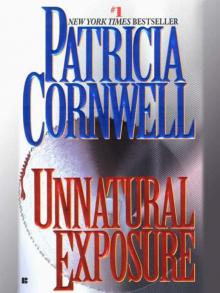 Unnatural Exposure
Unnatural Exposure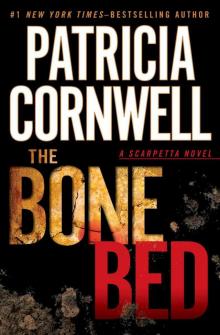 The Bone Bed
The Bone Bed Book of the Dead
Book of the Dead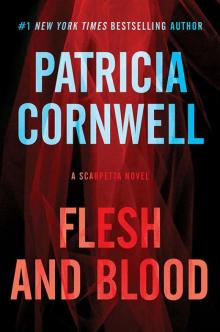 Flesh and Blood: A Scarpetta Novel (Scarpetta Novels Book 22)
Flesh and Blood: A Scarpetta Novel (Scarpetta Novels Book 22)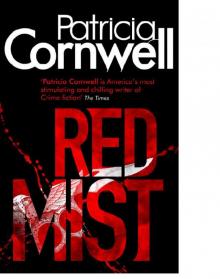 Red Mist
Red Mist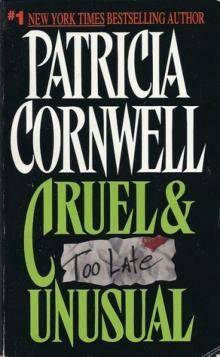 Cruel & Unusual
Cruel & Unusual Hornet's Nest
Hornet's Nest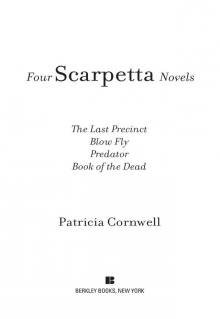 Four Scarpetta Novels
Four Scarpetta Novels Scarpetta's Winter Table
Scarpetta's Winter Table Isle of Dogs
Isle of Dogs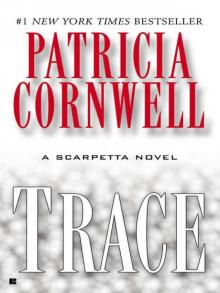 Trace
Trace Postmortem
Postmortem Body of Evidence ks-2
Body of Evidence ks-2 Southern Cross
Southern Cross All That Remains
All That Remains Point of Origin
Point of Origin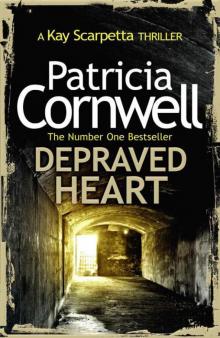 Depraved Heart
Depraved Heart Ruth, a Portrait: The Story of Ruth Bell Graham
Ruth, a Portrait: The Story of Ruth Bell Graham From Potter's Field
From Potter's Field Flesh and Blood
Flesh and Blood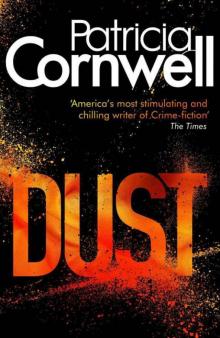 Dust
Dust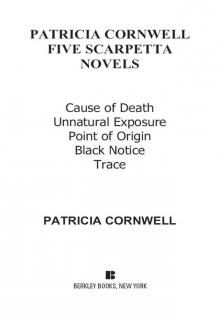 The Body Farm
The Body Farm Port Mortuary
Port Mortuary Quantum
Quantum Portrait of a Killer: Jack the Ripper - Case Closed
Portrait of a Killer: Jack the Ripper - Case Closed Spin (Captain Chase)
Spin (Captain Chase)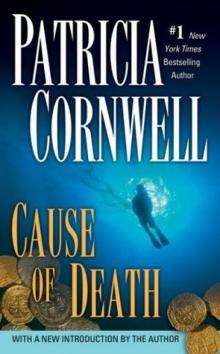 Cause of Death
Cause of Death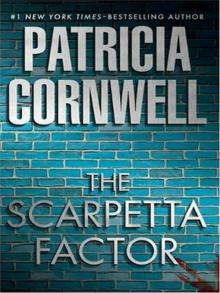 The Scarpetta Factor
The Scarpetta Factor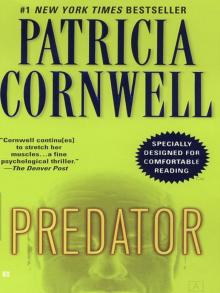 Predator
Predator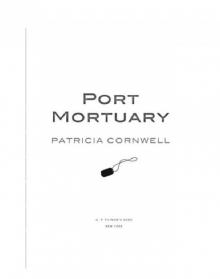 Scarpetta 18 - Port Mortuary
Scarpetta 18 - Port Mortuary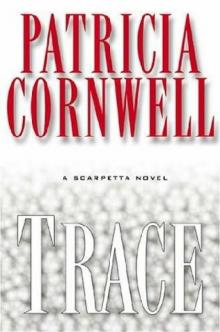 Trace ks-13
Trace ks-13 Portrait of a Killer
Portrait of a Killer Cruel and Unusual ks-4
Cruel and Unusual ks-4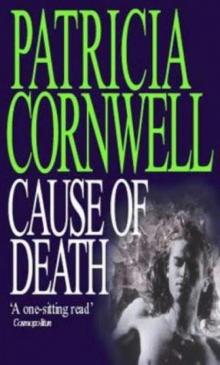 Cause Of Death ks-7
Cause Of Death ks-7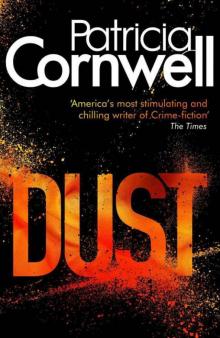 Dust ks-21
Dust ks-21 At Risk wg-1
At Risk wg-1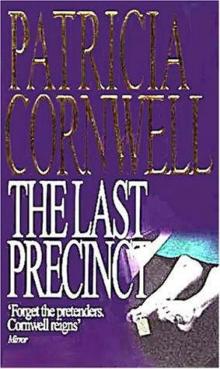 The Last Precinct ks-11
The Last Precinct ks-11 Book of the Dead ks-15
Book of the Dead ks-15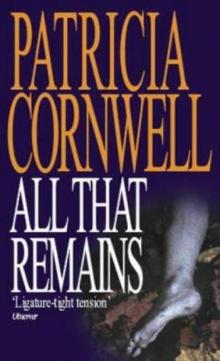 All That Remains ks-3
All That Remains ks-3 Ruth, a Portrait
Ruth, a Portrait Scarpetta's Winter Table (kay scarpetta)
Scarpetta's Winter Table (kay scarpetta) From Potter's Field ks-6
From Potter's Field ks-6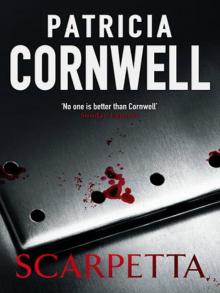 Scarpetta
Scarpetta Isle of Dogs jhabavw-3
Isle of Dogs jhabavw-3 Hornet's Nest jhabavw-1
Hornet's Nest jhabavw-1 The Body Farm ks-5
The Body Farm ks-5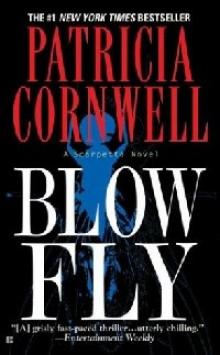 Blow Fly ks-12
Blow Fly ks-12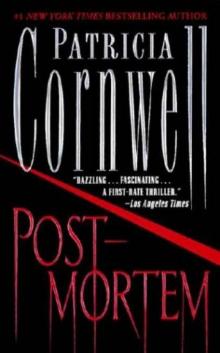 Post Mortem
Post Mortem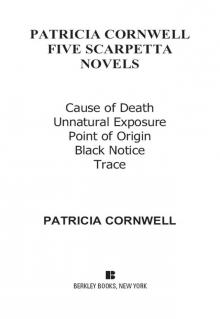 Five Scarpetta Novels
Five Scarpetta Novels Chasing the Ripper (Kindle Single)
Chasing the Ripper (Kindle Single) Point of Origin ks-9
Point of Origin ks-9 Port Mortuary (2010)
Port Mortuary (2010) Unnatural Exposure ks-8
Unnatural Exposure ks-8 Southern Cross uhabavw-2
Southern Cross uhabavw-2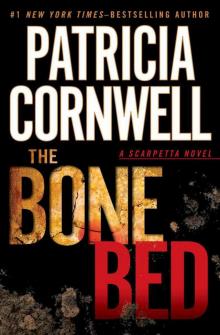 The Bone Bed ks-20
The Bone Bed ks-20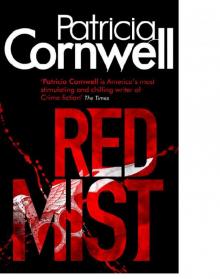 Red Mist ks-19
Red Mist ks-19 Port Mortuary (2010) ks-18
Port Mortuary (2010) ks-18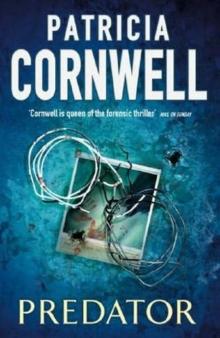 Predator ks-14
Predator ks-14